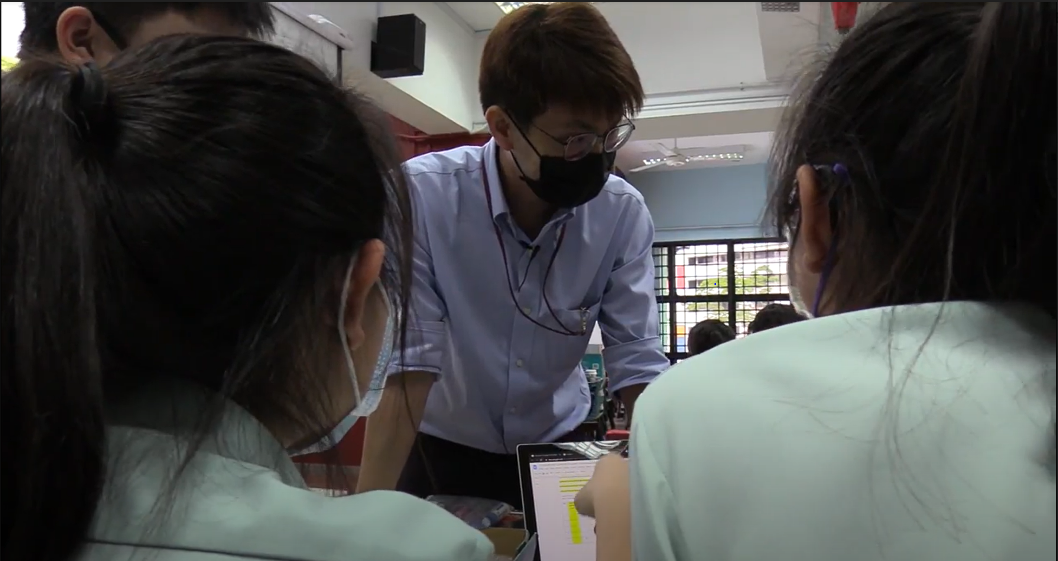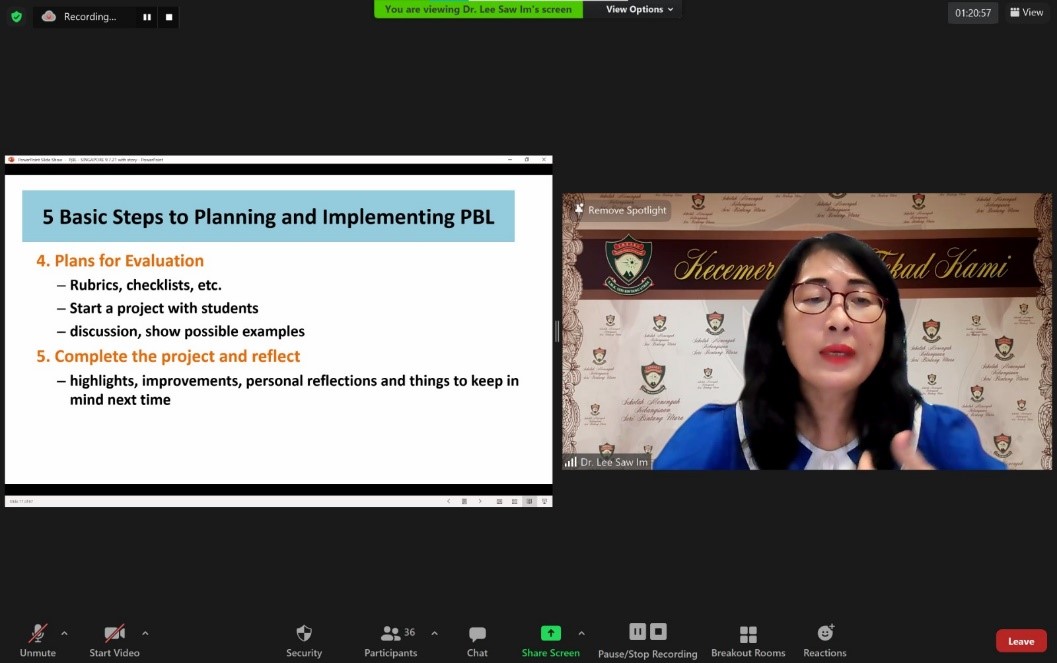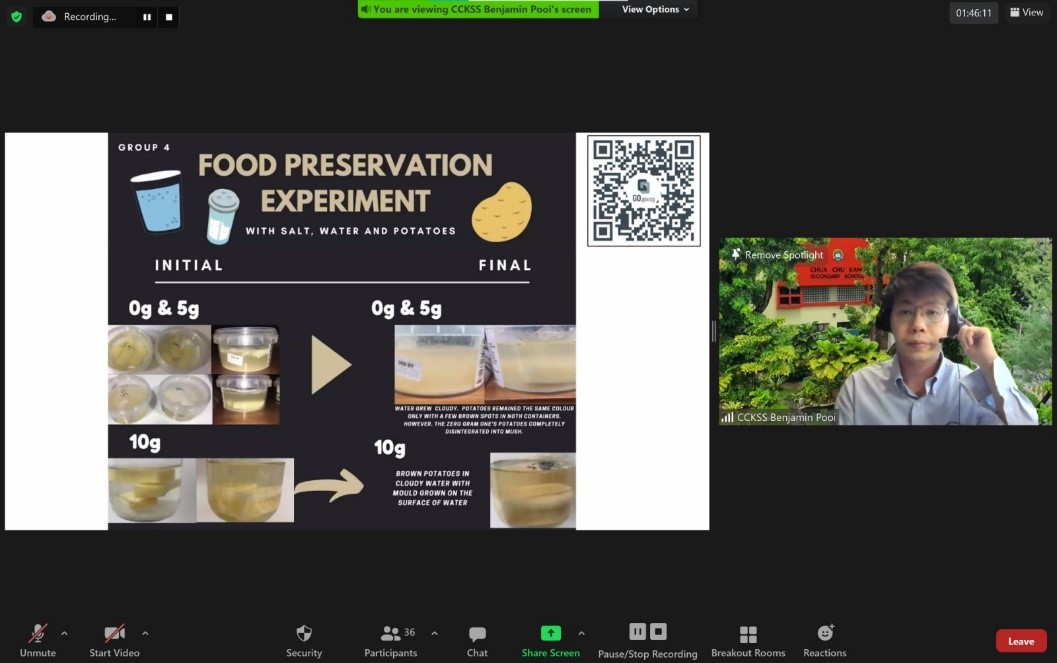Dr Lee Saw Im (1H 2021)
Dr Lee Saw Im (1H 2021)
AST’s 27th OEIR/C
Dr Lee Saw Im is the Head of Chemistry Department in SMK Seri Bintang Utara, Malaysia. She is the state and national master trainer for Chemistry teachers, who is also responsible for designing the Standard Document Curriculum and Assessment for Forms Four and Five Chemistry in Malaysia.
For her outstanding work, Dr Lee has received various prestigious accolades such as Microsoft Innovative Educator Expert for 2020–2021, 2020 Iconic Teacher Award, 2019 Global Teacher Award, 2017 National STEM Excellent Teacher Award, and 2016 Best Science Teacher Award in South East Asia (1st Prize). Dr Lee has been invited as a speaker in both national and international conferences.
Working with our Master Teacher and Teacher Collaborator
While Dr Lee was not able to be physically present in Singapore to observe classroom teaching, with the strong support and assistance of a local Teacher Collaborator, Mr Benjamin Pooi, Senior Teacher (Chemistry) from Chua Chu Kang Secondary School, the OEIC team was able to capture key moments detailing the pedagogy, project-based learning advocated by Dr Lee, and enacted by Mr Pooi. Throughout her engagement, Dr Lee was able to participate in rich dialogue with our Master Teacher supporting the program, Dr Mohammad Shahrin, who also lent his subject matter expertise and pedagogical experience to further enhance the depth of Dr Lee’s strategies.

Conduct of Online Workshop
In working with AST, Dr Lee conducted her Online Workshop titled ‘Using Project-Based Learning for a Blended Chemistry Classroom’ over two sessions for chemistry educators. During the Workshop, she was able to share the theoretical underpinnings of what project-based learning entailed, the considerations, rubrics , her own experiences, and those of her students in utilising the strategy in her own classroom. Participants also heard from Mr Pooi, who shared his experiences in enacting a project-based lesson on the preservation of fruits and vegetables in his classroom, and how his students were able demonstrate not only a keen sense of self-directedness in carrying out their respective projects, but also expressed a deeper understanding and appreciation of the chemistry concepts employed throughout.


At the end of the workshop, participants expressed how they were keen to integrate small scale project-based learning to support their own forms of active or blended learning; they were also grateful to Dr Lee for sharing this specific strategy which promoted authentic learning experiences in the classroom, while at the same time promoting student ownership and the Joy of Learning in the chemistry classroom.
We are honoured to have the opportunity to interact and work with Dr Lee through the OEIC programme and we would like to thank her for being generous in sharing her keen perspective on Project-based Learning that teachers could use in their classrooms.

